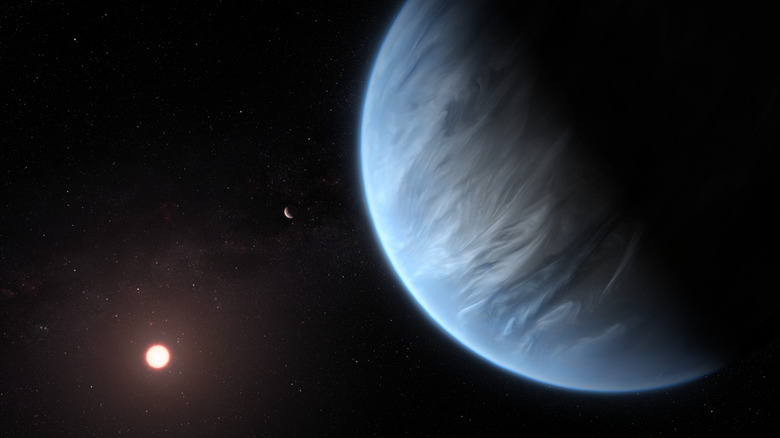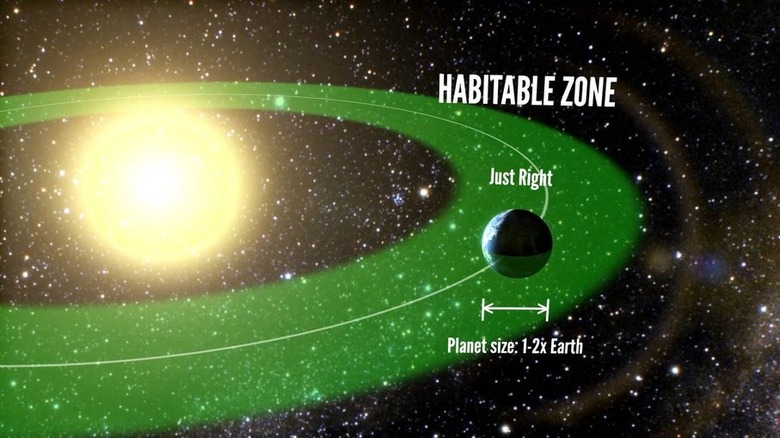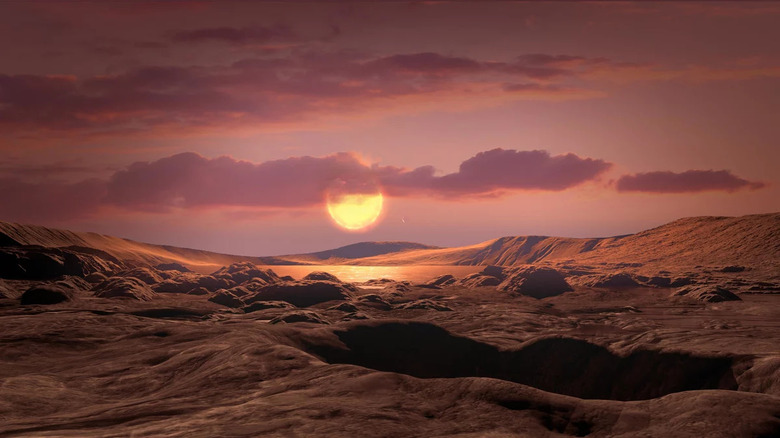Astronomers Just Found A Potentially Habitable Earth-Sized Planet, And It's Nearby
Astronomers recently discovered an Earth-sized exoplanet located just 31 light-years from Earth which may even be potentially habitable. The exoplanet is orbiting a star called Wolf 1069, so it has been given the name Wolf 1069 b. It is thought to be around one and a quarter of Earth's mass, a rarity for exoplanets discovered so far.
"When we analyzed the data of the star Wolf 1069, we discovered a clear, low-amplitude signal of what appears to be a planet of roughly Earth mass," said the lead researcher of the paper in Earth and Planetary Astrophysics, Diana Kossakowski of the Max Planck Institute for Astronomy (MPIA). "It orbits the star within 15.6 days at a distance equivalent to one-fifteenth of the separation between the Earth and the Sun."
Most of the over 5,000 exoplanets discovered are gas giants like Jupiter or Saturn. These planets are larger than rocky planets like Earth, Mars, or Venus, making them easier to spot from far away. Depending on the method used to detect the exoplanet, it is also often easier to spot a planet that is orbiting close to its star, which is why many exoplanets discovered are a type called a hot Jupiter.
This discovery is notable for two reasons: firstly, for being an Earth-mass planet, and secondly, for being potentially habitable.
The habitable zone
The traditional view of whether a planet counts as habitable is based on the probability water could be present in liquid form on its surface. By seeing how far a planet is from its host star, astronomers can estimate its surface temperature and see whether it is between 0 and 100 degrees Centigrade. This is because liquid water is essential for almost all life as we know it, so we assume it would be needed for an exoplanet to be habitable. Astronomers refer to the area around a star where liquid water could be present as the habitable zone. They typically consider any planet in this zone livable (per The Planetary Society).
However, in practice, this definition is complicated. There can be many factors affecting the surface temperature of a planet, some of which we may not be able to determine from so far away, such as the composition and thickness of the atmosphere. Other factors could make a planet uninhabitable, such as the radiation it receives from its host star. And there could be liquid water on exoplanets outside of this zone due to heat caused by tidal forces.
That's why even though Earth is the only planet within the habitable zone in our solar system, researchers think that places like Jupiter's moons Europa, Ganymede, and Enceladus could potentially be livable too (via the European Space Agency).
The habitability of Wolf 1069 b
The newly discovered planet orbits a star much cooler than our sun. So even though the planet is closer to its star than Earth is to the sun, it may not be warm enough for water to be liquid there (via MPIA).
The planet is calculated to have a temperature of -23° C, which is too cold for liquid water. However, that value is based on the planet having no atmosphere. If it had an Earth-like atmosphere, the greenhouse effect could raise its temperature to 13° C, meaning there could be liquid water on the side of the planet facing its star. The researchers also point out that having such an atmosphere could protect the planet from harmful radiation from the star.
But the planet has a feature that would make it very different from Earth, even under the most favorable conditions: it is tidally locked. That means that one side of the planet always faces the star, getting hot, while the other side always faces away, being much colder. So even at best, only one side of this planet would be habitable.
To learn more about this planet, the researchers need to use new tools like the upcoming Extremely Large Telescope, which will be able to study it in greater detail — and they estimate it will take around ten years before this is possible. In the meantime, they will keep searching for other exoplanet candidates.


